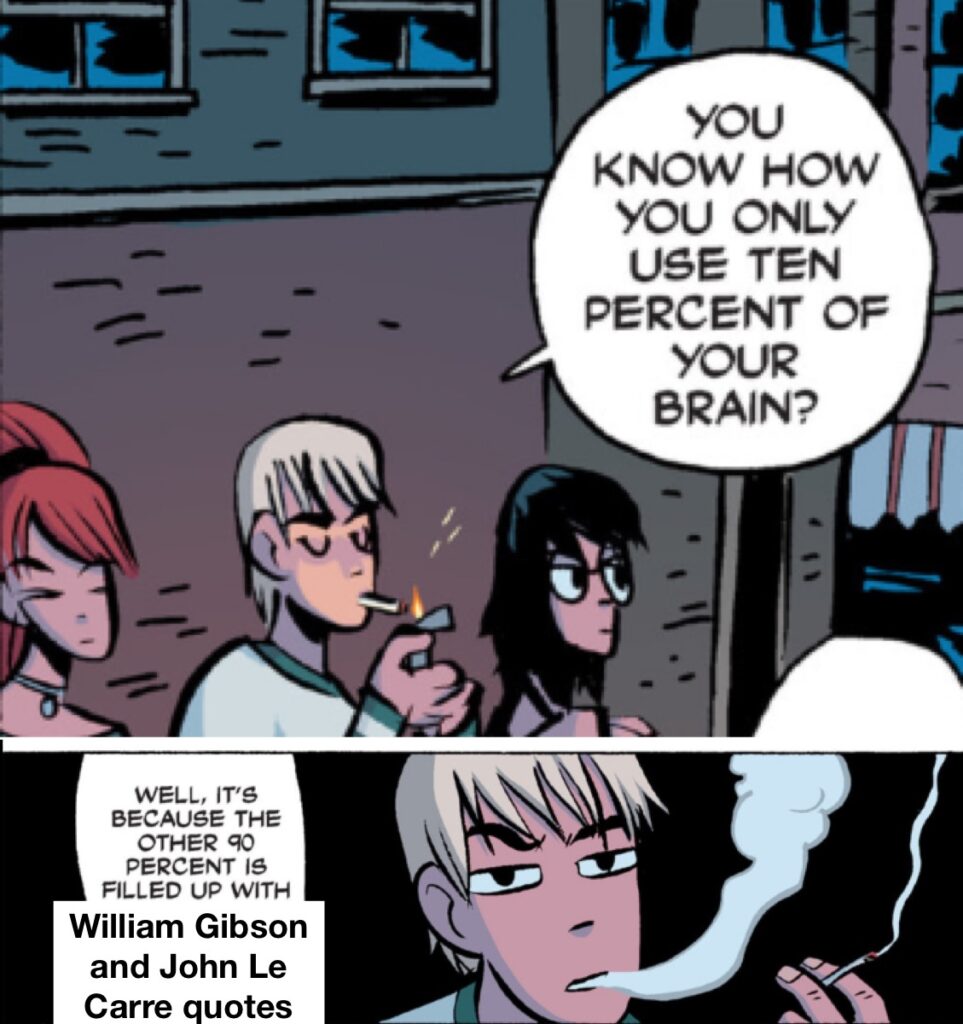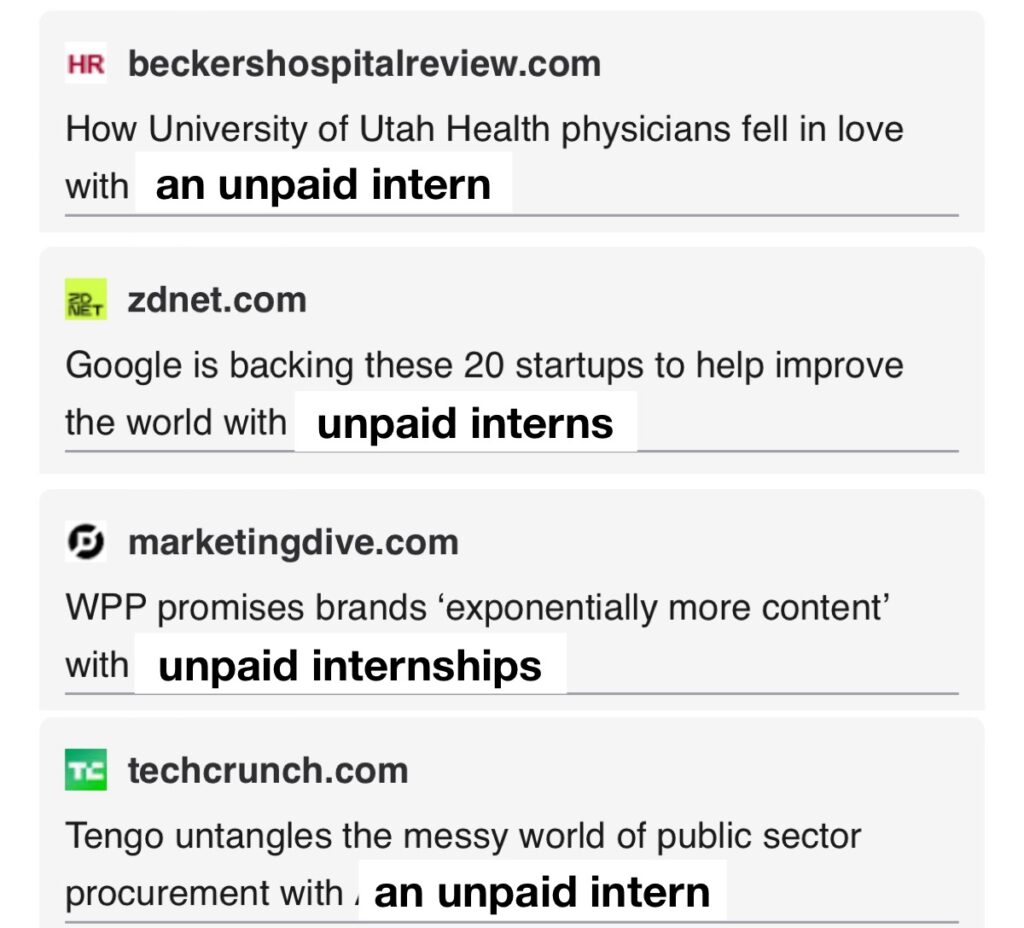“Oh boy, do you have problems of your own. And wow, are you probably not going to solve them.”
Category: Pulverbatch
A brief programming note
In my entry of December 6, you may recall that I briefly considered joining the ranks of email newsletter writers like my vaunted friends, and then: I didn’t do that. I did look into the available tools for integrating some kind of subscription-by-email service to this blog! But I could not find any that work the way I had imagined, where you just put an address in a form and then the thingy sends you a nicely formatted message containing the body of the post each time I write something new. Once again the dead technology of RSS remains too advanced for our modern world to comprehend.
But hey, maybe you don’t like RSS and you do like emails! If so then we don’t need an entire tech startup to intermediate that. You can just write me and I will add you to a very simple mailing list, albeit not so simple that it lacks a confirmation step. Thereafter I will send you an email when I write something new. You can tell I’m serious about this because I’m adding it to the blog sidebar too. Happy 2025! Email will outlive us all!
I hate when it’s been so long since I logged into wordpress that it prompts me to make sure my admin email is still correct.
Because I see many more interesting web pages through my RSS reader than I want to dump into my ostensibly personal blog, a sneaky thing I have done for the past while is smuggle them out through my employer’s official newsletter instead. It comes out once a week, on Friday afternoons, and has a numbered list of about seven links with a couple sentences each attached to them. My name isn’t on the masthead, but we have an internal chat channel where anyone can suggest things, and by “anyone” I mean “75% of the time it’s just Brendan again.” The newsletter is obviously a marketing tool, but our marketing team (Olivia) is very dear and lets me get away with a lot. If you type the word think, and then the word shout, and then add a dot com and hit enter, you will be able to scroll down to the bottom of your browser tab and enter a throwaway email address if you’d like to read it.
While I am recommending weekly newsletters, my long-long-longtime friend Erin has recently launched her own endeavor as The Old Shoebox, and she is so, so good at it. I’d say Erin was born for the medium, but of course that’s not true, she was forged for the medium in the fires of many a shared doc. Between her newsletter and Sophie’s, I am tempted to reactivate my own long-dormant email blaster in an attempt to form a Rogers Park Magmatron.
But the words “long-dormant” above do not exactly hint at success for my component of the robot in question, so maybe I will just recommend joining me in curiosity about izzzzi. I have been a member of it for exactly one day and I already have great respect for its creators’ choice to directly oppose the dark patterns of nearly all social networks. I’m signed up as brendn, and if you would like to email me your username so we can be mutuals, maybe you’ll find out whether I go dormant there or not.
Things I have enjoyed of late
A lot of these are on YouTube, so if you are not a fan of YouTube, you should skip those. But it’s a hard world out there, and videos are some of the things that help divert me from ruminating on matters I can’t control.
- For instance, Tico and his Man are a beautiful example of what can emerge from surrendering to inspiration and letting an enigmatic artist follow his unknowable muse, especially if that artist is a parrot.
- I also feel a great freedom in having given up on Connections and replaced it in my mornings with friendlier puzzles. Cine2Nerdle has possibly the worst Wordle-derived name anyone has yet produced, but it does exactly what I wanted from Connections in terms of interface and hinting, and it’s about movies! (Don’t even talk to me about Cinematrix, I can’t stand it.)
- The NYT web games team can still do good work, though. Strands has actual hints that can be earned through play (not that they’re often necessary—its challenge level varies, but tips toward the easier side). But the first few minutes of looking at a new day’s grid, waiting for my pattern-recognition neurons to wake up, are a consistent if brief instruction in patience.
- But back to videos. I found Brad the Tech Time Traveller’s channel algorithmically—I think his literally-bricked hard drive documentary was what first caught my attention. I love to wind down in the evening by watching him work, and he also has a blog which ably demonstrates his time-travel credentials by skillful use of a <marquee> tag.
- I’ve played a number of games set in the milieu of the Romance of the Three Kingdoms, but I’ve never actually read the original novel. I could just try that—the work is very much in the public domain—but these days I find it easier to digest fiction via audio. So when I want to occupy one hemisphere of my brain with Minecraft, I occupy the other with the podcast that motivated me to make this post in the first place. John Zhu originally started his Romance of the Three Kingdoms Podcast a decade ago, going through the book chapter by chapter in a kind of ongoing summation abetted by his own commentary and context. I find his work so charming and affable, and generous with explanations for a naive audience member like myself. Zhu has gone on to cover other works of similar import under the umbrella of The Chinese Lore Podcast. I’m almost a quarter of the way through the 174 (!) episodes of the original, so I’m very glad there will be more to listen to when I get through all of those.
- Oh, also I still play Minecraft (and of course I still watch Joe). I got back into the game when my nieces and nephews became interested, and then they got kind of bored of trying to coordinate with me long-distance. I kept playing anyway. I can’t play it with joysticks at all, which rules out my Switch, and my laptop is a little unwieldy for games, so I’ve been playing the Bedrock version of the game on my tablet with a bluetooth mouse. I miss being able to mod the Java version but I don’t miss having to sit at a desk to play it. I have a nice little world going now, featuring such wonders as a villager who sells mending books and also a square chunk hole that I dug one block at a time from a mountaintop to the bottom of the world. It’s just a solo local file, but if you are a friend who would like to play in it, email me and I will click the button that makes it a server.
- This is becoming more about video games than I expected. I can’t play Minecraft on our elliptical, so to occupy that version of my brain, I use a secondhand tiny piracy machine to play a randomized version of Final Fantasy III (6) called Worlds Collide. It’s promoted mostly as a racing game—the community holds regular tournaments where competitors all start with the same seed and try to be the first to beat the final boss. I have played through probably twenty times now and I must accept that I will never, ever be fast enough to compete in even the introductory qualifiers. But the scope of the game and my own teenage familiarity with it are juuust right to make it a fun puzzle with many possible solutions every time.
- Let’s go back to the part where I’m bad at reading books! It took me an undisclosed amount of time to finish Roaming, because at first its illustrations of youthful personality interplay were too acute. But I barreled through the back half and loved it, as I do everything by either of the Tamaki cousins. I was spurred on in no small part by the chance to participate in my first ever Zoom-based book club meeting, a privilege of my subscription to Sophie’s wonderful newsletter. It was a treat! Sophie always has excellent book recommendations, and has since motivated me to get my heart broken by a whole different graphic novel.
- And speaking of paid subscription privileges, ACHEWOOD IS BACK, BABY.

- I made the above visual goof in a few minutes on my phone with Mematic, which is kind of a silly app to pay for given how much image-editing software I already own. But I like how easily it allows me to make little jokes to show my friends in small amounts of time.



- I loved getting to see Lucy’s collections of studio dances!
- I continue to enjoy, above all else, being married to Kat.

- There’s just one more YouTube link left in this blog post. But I promise I saved it for last for good reason.
Linked Onlist
Oh right! Another thing that has been slowly changing about the actual HTML markup of xorph dot com slash nfd is the “My Town” and “My Neighborhood” menus that appear at the bottom of any given archive page. The latter is a good old-fashioned friend blogroll; the former is the roll of links for friends who have nice internet sites that are not blogs. If you, like me, are avoiding tasks at the moment, you could do a lot worse than picking one of them to click on! You can even use this special magic link to do the picking for you.
Linked Nonlist
I have to imagine that both of you, my readers, consume my blog by way of a feed subscription. So you likely have no idea that I have a secret rule about what kinds of posts I allow myself to make and when. But I am the one who actually looks at the front page of this thing, so I have developed aesthetic preferences about it! Back in my micropost social media days, I got very used to the format of a-small-quote-excerpt-and-a-link, and I have carried that over to this blog. But the theming here renders those differently than regular posts—in a way that I like!—and I prefer to look at them interspersed between regular non-quote posts, not back-to-back.
Am I just writing this so I can get another of the quote-and-link posts out of my backlog? I guess we’ll never know.
“If you are intrigued by the idea of writing a sequel but you haven’t yet written the first thing, may I suggest pretending the first thing is already a sequel. It really greases the wheels for me.”
Setec Astronomy
I’ve played Connections like four times now, which of course you can understand means that I am ready to issue a wise verdict from the top of Game Design Mountain. The verdict is: this game’s interface and its incentives are at odds, which irritates me, but there are simple changes that could make it more fun and less frustrating without changing its difficulty.
I became aware of the game to begin with because part of the NYT Games team’s marketing strategy is working. Finishing a given day’s puzzle yields one of those little block patterns of color-square emoji, the ones that look like 

In one abstract rendering, both games could be reduced to “solve a puzzle in X educated guesses from a fixed domain of discourse.” Per Wyna Liu, the game’s editor and credited creator, the placement of the initial squares in its grid is deliberate, a choice designed to lead you down false paths before you sort out the right ones. The editors clearly enjoy coming up with grid items that fit more than one potential answer, and in my experience it’s easy to come up with multiple groups that are conceptually closer than the ones they chose (DOG and HEEL belong with JERK and SNAKE instead of FETCH and SIT? Really?).
That means that the actual game pitch is “solve for all four answers at once, and don’t get greedy by jumping to conclusions!” Which, fine, whatever, there’s nothing wrong with that in isolation. Liu herself, in the brief interview above, expresses support for the “pen and paper method” of working on solutions. Which is again fine, if we were talking about a game that the NYT printed on paper. But it’s not! It’s a web app! If the editor believes that the right approach is to sort out all four groups and check them through before submitting your answer, why doesn’t the user interface allow you to do so?
I’m not an interaction designer, but even I can come up with a simple solution here: make the tiles draggable, and allow the player to move them all into a solution grid before hitting submit. Instead, the only ways to move the tiles the developers have offered are a random shuffle button or a jump to a conclusion. The tiles shift themselves to the top available row when you make a successful guess, which is telling the player “go ahead and take your shot, I’ll reward you by reducing the complexity of the board if you do.” But that’s a contradiction of the editorial strategy laid out above. If you do fall for the temptation of the UI, your wrong guess might yield a cue like “one away!” that is of very limited utility, and that then vanishes, leaving only a record of your punishment. The effect is more like a taunt of “skill issue lol” than an encouragement. That’s reinforced by sharing-based marketing gimmick and the way many players use the pen-and-paper attack to solve the puzzle with no record of wrong guesses, so any mistakes at all come across as failure rather than tactical work.
This is what I mean about Wordle’s comparative elegance. Wordle gives you more guesses, more information per guess, and a persistent record of those guesses in both the solution rows and its keyboard. That means you can walk away from the game and retain your context when you come back to it later. Perfect solutions are possible only through a rare stroke of luck (or cheating), so if you’re competing against your in-laws on a group chat, it’s easy to evoke a sense of mingled competition and camaraderie. Even if sometimes everyone gets grumpy about HOMER or __GHT, there’s a real difference in the play experience between “ah, that was my fault” and “oh fuck off, you smug jerk/dog/heel/snake.”
The NFD Annual Blog Post of the Year Award 2022
If you’ve been heeding my exhortations then you have long since already subscribed to The Roof is on Phire and no doubt caught this months ago, when it went up. But I’ve been trying to figure out how to do something more emphatic than simply quote from “labour of love” ever since I read it (and read it again), so here it is: the extremely legitimate and hallowed NFDABPOTYA for this very long year, presented to my friend Jenny, for extraordinary work.
“Loving this planet enough to fight against the man-made systems that harm us all, instead of retreating, is the hardest work there is.”
I have felt stuck about writing here for a while, and there has been a death in my family that I will need to write more about when the words come to me. But right now I just want to talk more about blogs. One of the most exciting things that has come to my awareness recently is Phil Gyford’s ooh.directory of blogs and its RSS feed of newly added URLs. I don’t know if Mr. Gyford’s manual review and curation of these things is sustainable in the indefinite, but what a great idea! It seems to me like social media and SEO supremacy have rendered personal blog discoverability broken, but one need not fix the entire internet to build a little free library in one’s front yard.
By way of that directory, I have found a new source of dailyish poems, Janette Haruguchi’s ongoing explication of sashiko stitching, Bartosz Ciechanowski’s extraordinary interactive physics lessons, Jani Patokallio’s quest to find food from every Chinese province, special administrative region and contested island—in Singapore, and Bloom, a journal devoted to authors whose first major work was published when they were age 40 or older. And Eric Idle’s book reviews! A fan blog that’s just for Peanuts! Librarians dunking on books that need to go! And the directory is still so new. I suspect there are many more entries to come after the holidays.
Lucy linked, last month, to Dave Rupert’s suggestion to be a carpenter this time, and I’ve been turning it over in my mind ever since. I don’t know any real carpentry, though I’d be glad to have the space and time to learn. But the tools I do know can still make good things at the scale of individual humans, and that’s delightful to see, after a long time when I didn’t know where to look.


